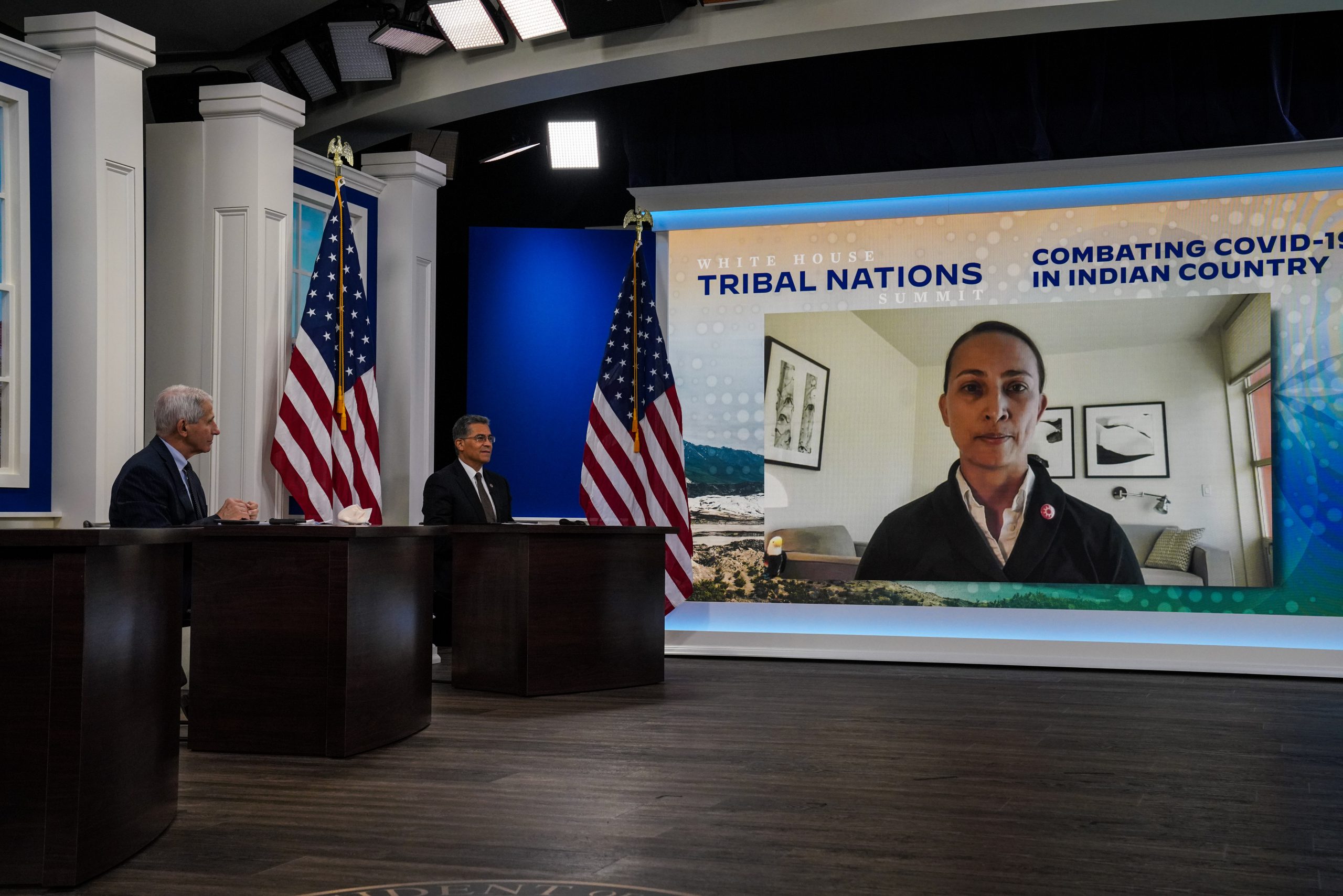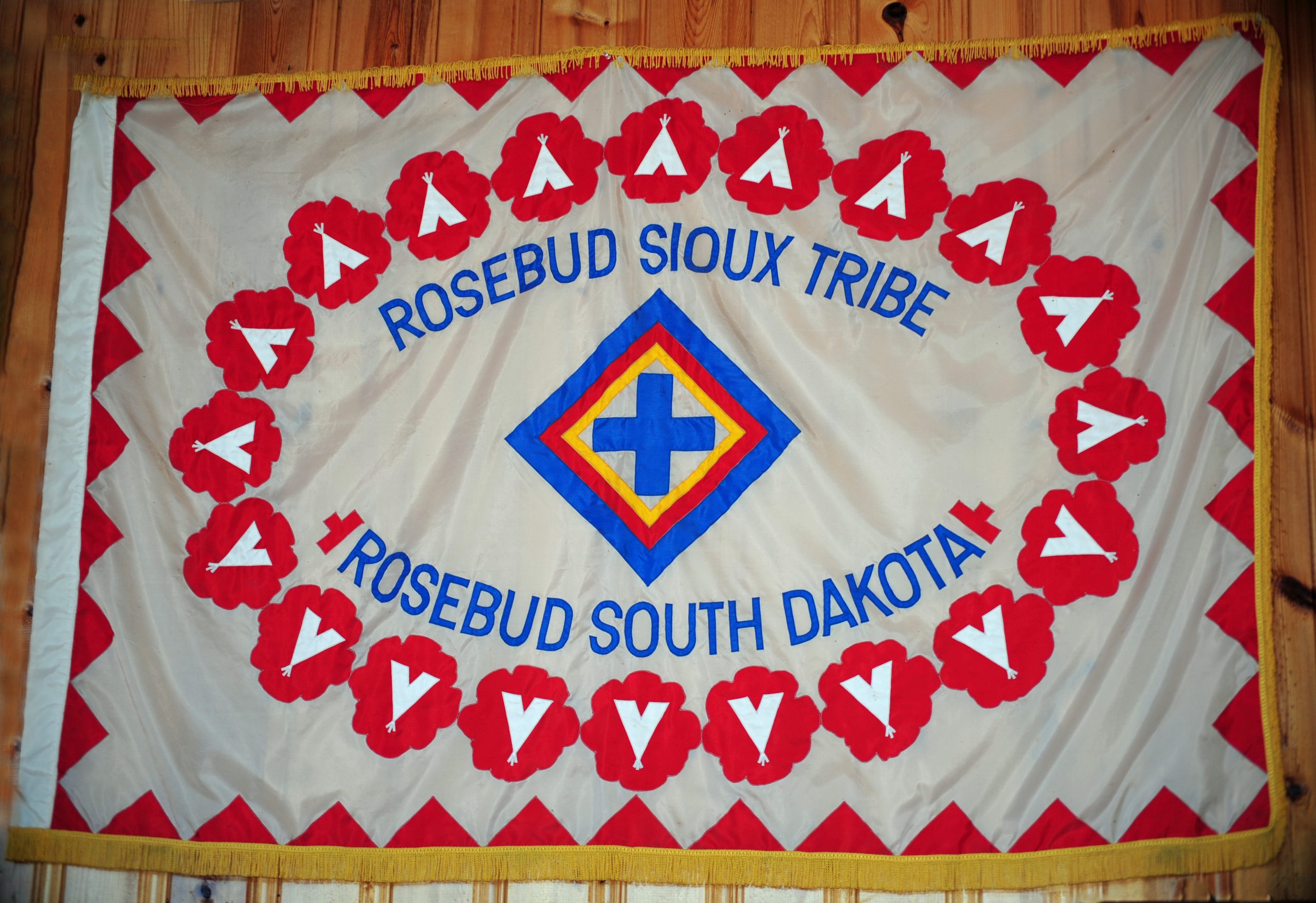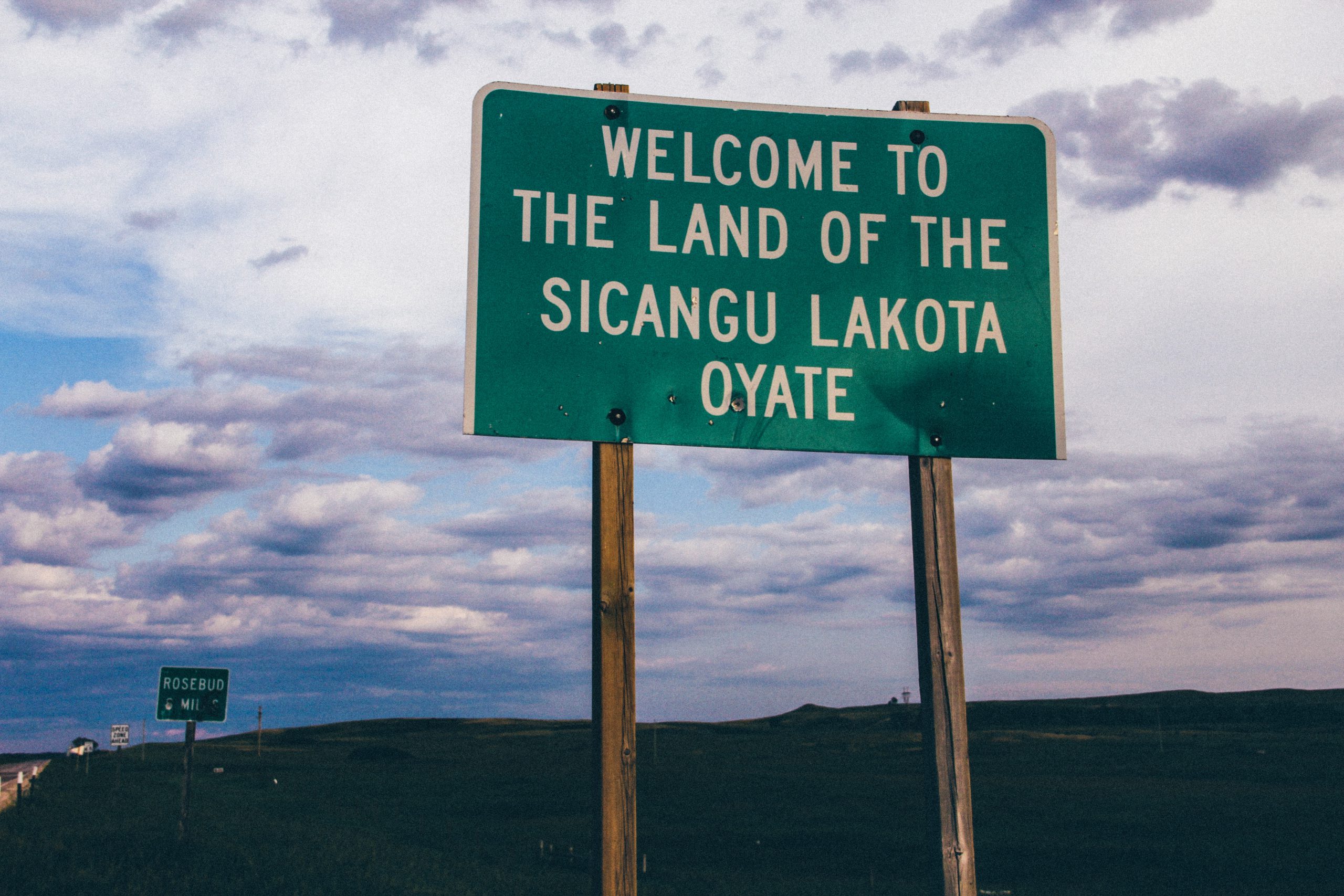Indianz.Com > News > ‘No one else needs to die’: Biden administration faces another test of commitment to Indian Country
‘No one else needs to die’
Biden administration faces another test of commitment to Indian Country with health care case
Friday, December 17, 2021
Indianz.Com
A deadline is fast approaching for the Joe Biden administration to live up to its promise to improve the federal government’s relationship with tribes and their citizens.
In August, the Rosebud Sioux Tribe won a major victory in a long-running lawsuit against the United States. The 8th Circuit Court of Appeals ruled that the 1868 Treaty of Fort Laramie requires the federal government to provide “competent physician-led healthcare” to the Sioux Nation and its people, many of whom often suffer from substandard services on their homelands.
“This decision is an important acknowledgment of the Rosebud Sioux Tribe’s treaty rights as well as every other tribe that signed on to the Fort Laramie Treaty of 1868,” then-president Rodney Bordeaux said at the time of the August 25 decision. “As the court noted, the federal government must do better.”
Members of Congress, Democrat and Republican alike, have taken notice too. On the eve of Thanksgiving, a holiday that wouldn’t exist without the sacrifices of the Wampanoag people, nine lawmakers from the U.S. House of Representatives told Biden to accept the victory secured by the Rosebud Sioux Tribe. “We believe an appeal of this case by the federal government would be detrimental because it would signal an unacceptable disregard for trust-based treaty responsibilities,” the five Democrats and four Republicans wrote on November 23. “Meeting treaty responsibilities is the cornerstone of sound federal Indian policy.” And during the White House Tribal Nations Summit a week prior, another signatory to the 1868 treaty tried to get a key member of Biden’s presidential cabinet on the record. Vice President Alicia Mousseau of the Oglala Sioux Tribe asked the leader of the Department of Health and Human Services, which includes the IHS, to explain the “trust responsibility of the U.S. government to provide quality health care to sovereign tribal nations.” Outlining what he said was his “personal belief,” Secretary Xavier Becerra admitted that the U.S. hasn’t always lived up to its responsibilities, despite being mandated by treaties, federal laws and even court decisions. But he declined to go into specifics about the nature of these health care duties due to ongoing “litigation.” “What I will tell you there is that the courts will give us a more clear definition of what we mean by that trust relationship,” Becerra, a former member of Congress and former attorney general of California, said on November 15, sidestepping the question in his official capacity as Secretary of Health and Human Services.Harold Frazier: "I have just finished sitting through the White House Tribal Nations Summit and I am not impressed." @CRSTChairman #HaroldFrazier #CheyenneRiverSioux #WhiteHouse #TribalNationsSummit https://t.co/84XW9eJ19U
— indianz.com (@indianz) November 18, 2021

Should the Biden administration pursue a rehearing en banc, additional briefing would be required. If the request is granted, a larger set of judges on the 8th Circuit would hear the case all over again, potentially leading to a different — even a less favorable — outcome for the tribe. “The United States and the Biden administration must honor and recognize its treaty and trust obligations and fulfill those promises of health care secured by tribal nations,” reads a letter to Biden that was signed by every major tribal organization in the U.S. “Upholding the Rosebud decision would be a significant step reflecting the Biden Administration’s commitment to honoring those treaties and trust obligations by providing adequate health care services to American Indians and Alaska Native people.” The Biden administration now has until Monday to file a petition for a rehearing. The November 4 order granting the extension warns: “No further extensions will be granted absent extraordinary circumstances.” With the case in limbo, leaders of the Sioux Nation have been meeting all week in Rapid City, South Dakota, for the Oceti Sakowin Titunwan Lakota Oyate Treaty Conference. They are expected to host a prominent guest on Friday: Secretary of the Interior Deb Haaland, who is the first Native person to serve in a presidential cabinet.Yesterday, President Biden participated in a Tribal Nations Summit – the first to be hosted at the White House – and announced steps to improve public safety and justice for Native Americans and protect Tribal lands, treaty rights, and sacred places. pic.twitter.com/CjLc2QlLE2
— The White House (@WhiteHouse) November 16, 2021
Oceti Sakowin Titunwan Lakota Oyate Treaty Conference
https://youtu.be/F8T3hEbgB88
https://youtu.be/gb7lXwx805s
https://www.youtube.com/watch?v=LR7Z0wCrG4o
Day 1 |
Day 2 |
Day 3 |
Rosebud Sioux Tribe on YouTube
The numerous letters urging Biden not to appeal the treaty rights victory have also been sent to Haaland. As one of the first two Native women in the U.S. Congress, she was given a Lakota name for her efforts in support of the descendants of the December 1890 Wounded Knee Massacre. The anniversary of the attack on a peaceful camp of Lakota people, which occurred at the hands of the U.S. military, is fast approaching. “The Rosebud Sioux Tribe is one of the Great Sioux Nation tribes, the Oceti Sakowin — Seven Council Fires of the Lakota, Nakota, Dakota,” President Herman of the Rosebud Sioux Tribe told Indianz.Com amid the historic treaty gathering. “In the days of our great-grandfathers, the Creator watched over our people and sent us the sacred White Buffalo Calf Pipe. Our people were happy and prosperous.” “Now, the United States, has taken our best lands and the Rosebud Sioux Reservation is a remote rural reservation, wracked with poverty, unemployment, and premature death for generations,” Herman added. “The average life expectancy of a Rosebud Sioux man is 47 years, which is comparable to third world countries.”


8th Circuit Court of Appeals Decision
Rosebud Sioux Tribe v. United States (August 25, 2021)
Letters of Support in Rosebud Sioux Tribe v. United States
Members of Congress
Indian Country Organizations
Great Plains Tribal Chairmen’s Association
President Scott Herman of Rosebud Sioux Tribe
Related Stories
Rosebud Sioux Tribe v. United States (August 26, 2021)Rodney Bordeaux: The truth about America’s genocide (August 23, 2021)
Rodney Bordeaux: Indian Country can’t afford to wait for Medicaid (August 3, 2021)
Rodney Bordeaux: Strengthening the nation-to-nation relationship (March 4, 2021)
Rodney Bordeaux: Joe Biden and Kamala Harris for Indian Country (October 22, 2020)
Search
Filed Under
Tags
More Headlines
Source New Mexico: Mescalero Apache Tribe seeks answers on internet betting
Native America Calling: What we’ve learned in the 35 years since the Mohawk Resistance at Oka
Native America Calling: Tribes forced to find new clean energy paths
Cronkite News: Republicans push ‘One Big Beautiful Bill’ through Congress
Native America Calling: Residents brace for Medicaid and food assistance cuts
NAFOA: 5 Things You Need to Know this Week (July 7, 2025)
Native America Calling: A kids-eye view of the importance of relatives
Native America Calling: Confusion reigns with American Samoa citizenship status
Native America Calling: A personal portrait and a summer blockbuster
Source New Mexico: Tribes demand protections for sacred lands
Arizona Mirror: Fire prompts evacuations on Navajo Nation
Cronkite News: Congress poised to reauthorize radiation compensation program
Native America Calling: The new limits on challenging federal actions
VIDEO: ‘We have a lot of support throughout Indian Country’
Native America Calling: The necessary, but imperfect reality of the Indian Health Service
More Headlines
Native America Calling: What we’ve learned in the 35 years since the Mohawk Resistance at Oka
Native America Calling: Tribes forced to find new clean energy paths
Cronkite News: Republicans push ‘One Big Beautiful Bill’ through Congress
Native America Calling: Residents brace for Medicaid and food assistance cuts
NAFOA: 5 Things You Need to Know this Week (July 7, 2025)
Native America Calling: A kids-eye view of the importance of relatives
Native America Calling: Confusion reigns with American Samoa citizenship status
Native America Calling: A personal portrait and a summer blockbuster
Source New Mexico: Tribes demand protections for sacred lands
Arizona Mirror: Fire prompts evacuations on Navajo Nation
Cronkite News: Congress poised to reauthorize radiation compensation program
Native America Calling: The new limits on challenging federal actions
VIDEO: ‘We have a lot of support throughout Indian Country’
Native America Calling: The necessary, but imperfect reality of the Indian Health Service
More Headlines